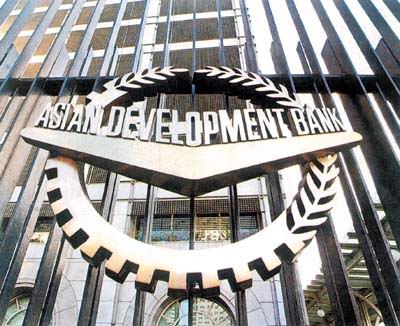ID :
355563
Wed, 01/28/2015 - 15:43
Auther :
Shortlink :
https://oananews.org//node/355563
The shortlink copeid
ADB and Mongolia sign USD 2.4 million in Grants from Japan for forests and peatlands

Ulaanbaatar /MONTSAME/ The Government of Mongolia and the Asian Development Bank (ADB) have signed letters of agreement for two technical assistance projects to establish sustainable forest management and improve management of peatlands in Mongolia.
The news was published Wednesday on the ADB’s website.
The projects, totaling USD 2.4 million, are financed by grants from the Government of Japan through the Japan Fund for Poverty Reduction (JFPR).
Minister of Finance J.Erdenebat; and Minister of Environment, Green Development and Tourism D.Oyunkhorol participated in the signing ceremony on behalf of the Government. ADB was represented by Ayumi Konishi, Director General of the East Asia Department. Shinichiro Hayashi, Counsellor, and Hiroshi Fukasawa, First Secretary, from the Embassy of Japan in Mongolia also participated in the event.
The sustainable forest management project will benefit five districts in northeastern Mongolia. Rising temperatures from climate change together with the large amounts of deadwood in the forest put these areas at risk of forest fires, which claim about 60,000 hectares of the country’s 10.8 million hectares of forest cover each year.
The USD 2 million JFPR project will “develop capacity for sustainable forest management from ministry to local levels,” Mr Konishi said in a speech at the signing ceremony. “It will develop capacity of community-based forest user groups, in particular women, on forest management to improve their livelihood.”
The project will provide assistance to agencies managing forests, and to the forest communities that will derive income from activities that build climate resilience of the forest ecosystems. It will use technical skill training and pilot technical approaches to improve the access of forest user groups and households to income-generating activities.
The other JFPR project--backed by a USD 400,000 grant--focuses on peatlands, the last wet habitats in a major part of the country. They present a host of benefits such as maintaining wet habitats and pastures, feeding rivers, preventing soil erosion, maintaining levels of groundwater necessary for forest and crop growth, and keeping wells full of water. During dry periods, which may continue for years, the moisture preserved in peatlands is a source of life and a barrier to desertification.
However, information regarding peatlands in Mongolia is insufficient and poor, contributing to the lack of attention given to them in national development plans, and consequently the absence of action to arrest peatlands degradation.
Through the project, ADB will work with the Government of Mongolia to “boost capacity of key stakeholders and improve the planning and implementation framework for peatland restoration and management in Mongolia,” Mr Konishi said. “A notable output of the JFPR-funded peatlands project is the development of a draft action plan with priorities for sustainable peatland management.”
ADB, based in Manila, is dedicated to reducing poverty in Asia and the Pacific through inclusive economic growth, environmentally sustainable growth, and regional integration. Established in 1966, it is owned by 67 members--48 from the region.





